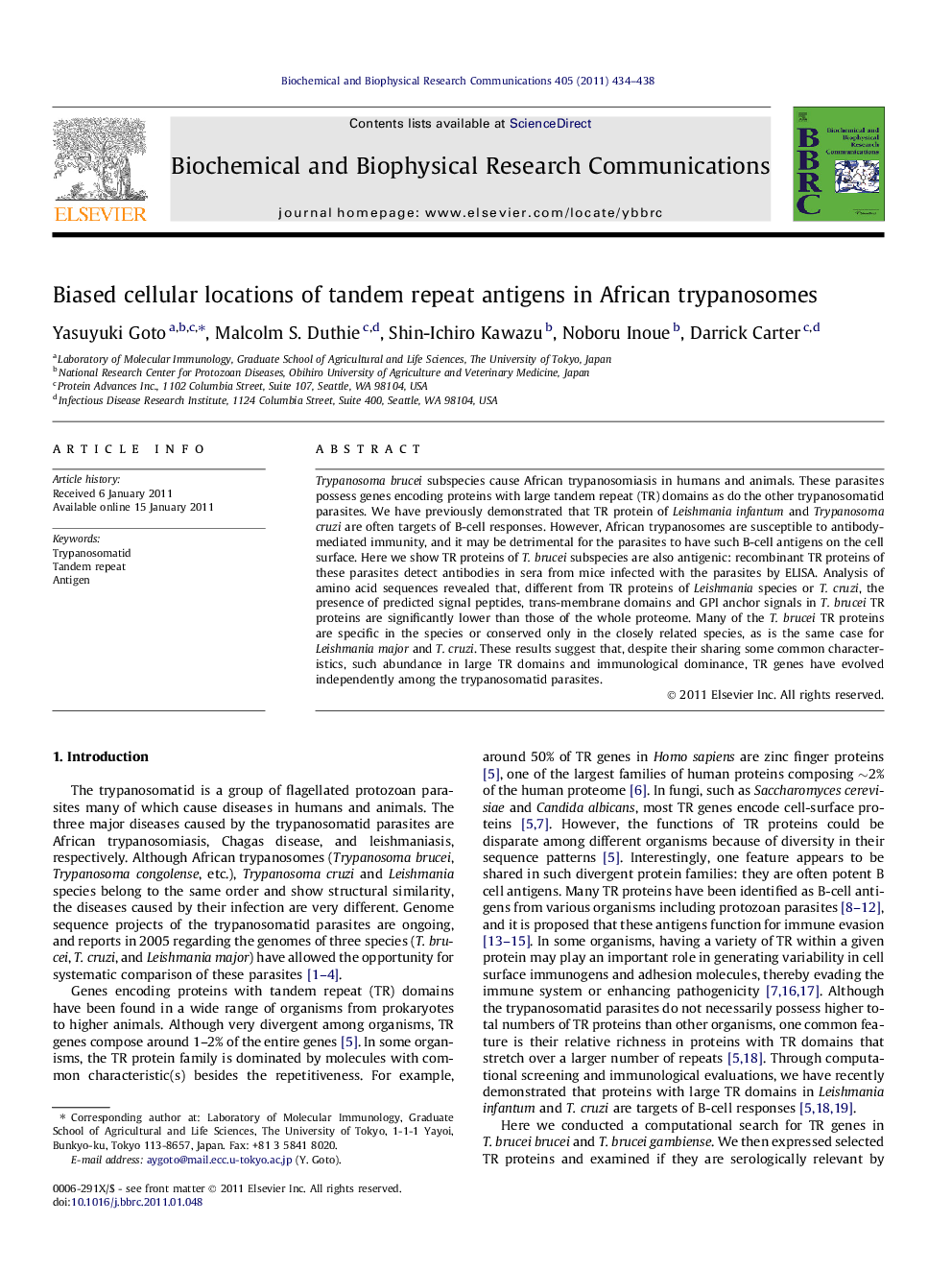| Article ID | Journal | Published Year | Pages | File Type |
|---|---|---|---|---|
| 1930682 | Biochemical and Biophysical Research Communications | 2011 | 5 Pages |
Trypanosoma brucei subspecies cause African trypanosomiasis in humans and animals. These parasites possess genes encoding proteins with large tandem repeat (TR) domains as do the other trypanosomatid parasites. We have previously demonstrated that TR protein of Leishmania infantum and Trypanosoma cruzi are often targets of B-cell responses. However, African trypanosomes are susceptible to antibody-mediated immunity, and it may be detrimental for the parasites to have such B-cell antigens on the cell surface. Here we show TR proteins of T. brucei subspecies are also antigenic: recombinant TR proteins of these parasites detect antibodies in sera from mice infected with the parasites by ELISA. Analysis of amino acid sequences revealed that, different from TR proteins of Leishmania species or T. cruzi, the presence of predicted signal peptides, trans-membrane domains and GPI anchor signals in T. brucei TR proteins are significantly lower than those of the whole proteome. Many of the T. brucei TR proteins are specific in the species or conserved only in the closely related species, as is the same case for Leishmania major and T. cruzi. These results suggest that, despite their sharing some common characteristics, such abundance in large TR domains and immunological dominance, TR genes have evolved independently among the trypanosomatid parasites.
Research highlights► Trypanosomatid parasites are rich in proteins with large tandem repeat domains. ► Tandem repeat proteins of African trypanosomes are targets of B-cell response. ► Most of these tandem repeat proteins are not exposed on cell surface. ► Tandem repeat genes have evolved independently among the trypanosomatid parasites.
